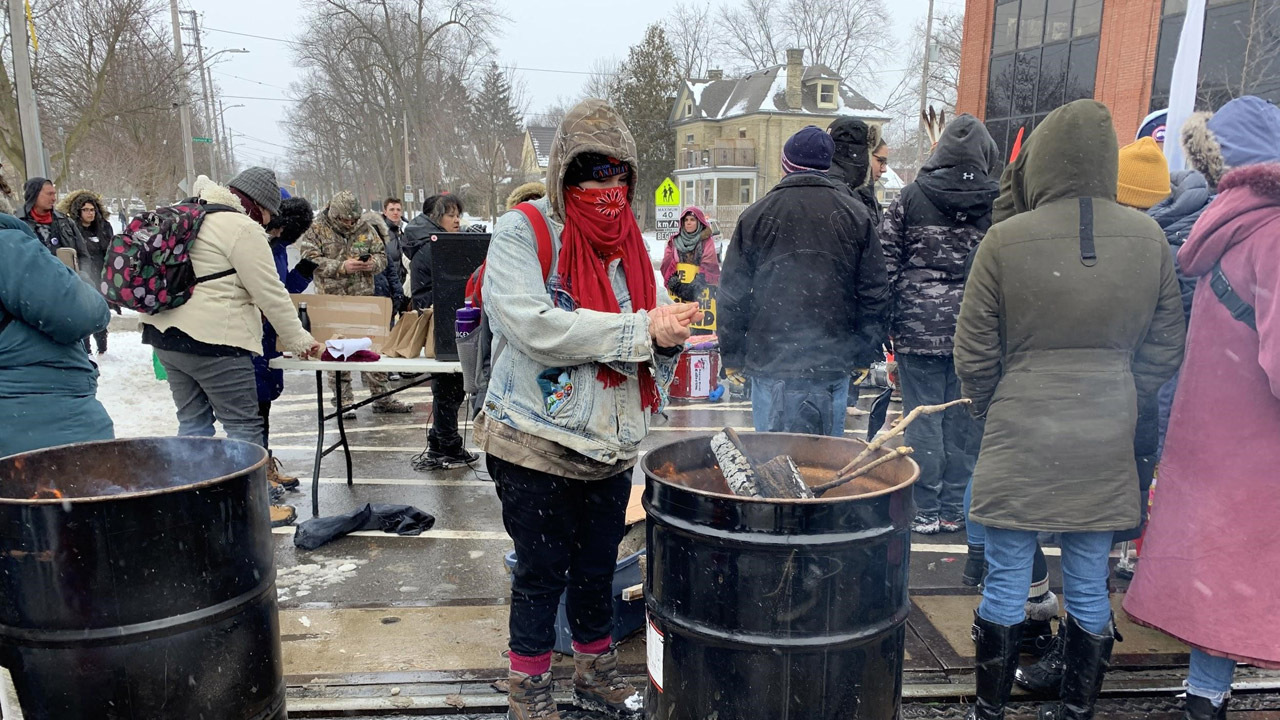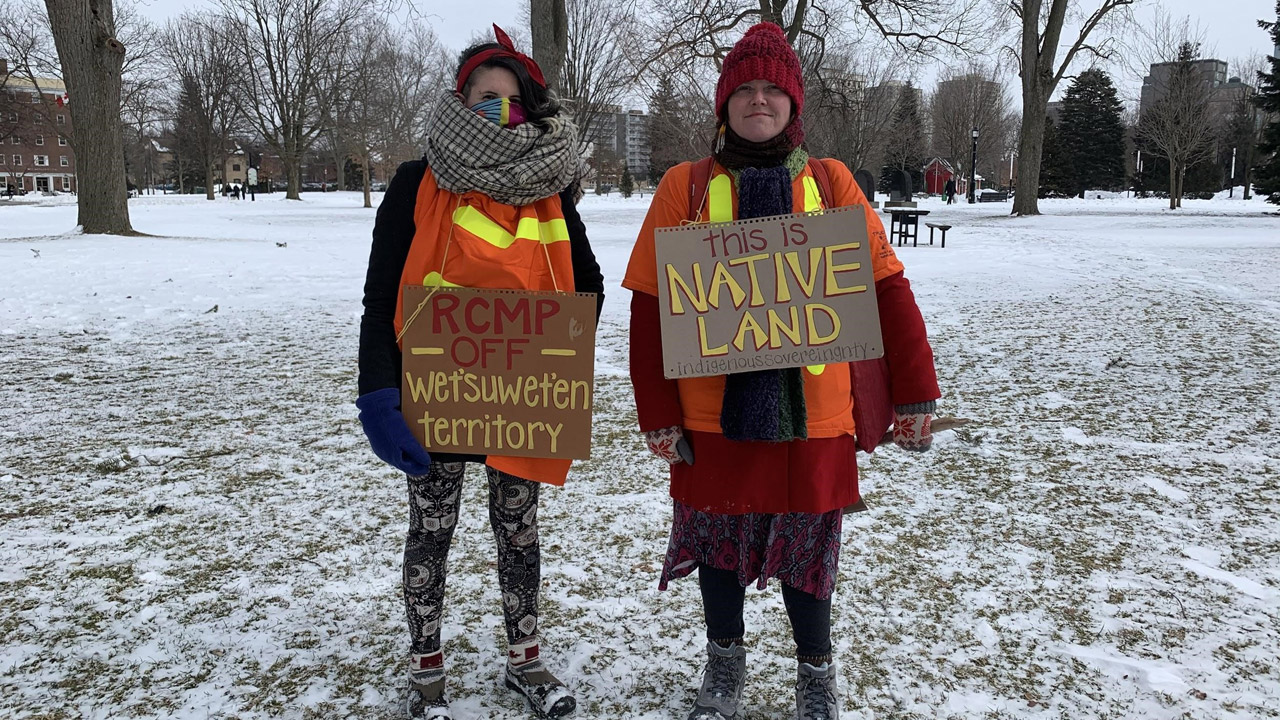Londoners protest in solidarity in Wet'suwet'en
 CREDIT: HANNAH THEODORE
CREDIT: HANNAH THEODOREOn a frigid Friday afternoon, protestors gathered around fires atop the railroad crossing at Waterloo Street and Pall Mall Street.
On Friday Feb. 28, Idle No More-London, Red Warriors, and Climate Justice London held an emergency protest in solidarity with Tyendinaga and Wet’suwet’en over the continued Coastal GasLink pipeline dispute in Smithers, B.C.
A group of Tyendinaga Mohawk protestors were arrested just four days before outside of Belleville, Ont.
Shawn Johnston is a Two Spirit, Anishinaabe photographer in London, Ont., and the child of a residential school survivor. They were involved in the organizing of Friday’s rally, and said that they hoped more people would continue to get involved in the discussion.
“The message that I try to tell non-Indigenous folks, is that this impacts all of us,” they said. “People just think that it’s an Indigenous issue and it’s not. I keep telling folks, we all live on the same land, we all breathe the same air, we all drink the same water.”
 Protestors gathered in Victoria Park before walking through the city and ending on the railroad tracks by Waterloo Street and Pall Mall Strev. CREDIT: HANNAH THEODORE
Protestors gathered in Victoria Park before walking through the city and ending on the railroad tracks by Waterloo Street and Pall Mall Strev. CREDIT: HANNAH THEODOREAround 200 protestors gathered at the gates of Victoria Park around 2 p.m. and began a short walk towards the railroad crossing near Richmond Street and Oxford Street.
After a short stop there, they moved east down Piccadilly Street to the railroad crossing at Waterloo Street and Pall Mall Street, where they sang songs, shared speeches, and stayed warm around a fire until they peacefully dispersed around 6 p.m.
Biinbigay Gizhig spoke at the rally and said that despite the distance from B.C., protests across can all make a difference.
“We want Canada and Canadian citizens to be aware of the situation that’s happening,” said Gizhig. “And one of the ways of doing that is to make sure to set up a blockade at a rail station, to set up a walking protest, whatever it may be. Because we want Canadians to become conscious of what’s happening in this country.”
Solidarity protests have been ongoing across Canada since the RCMP began moving in on Wet’suwet’en territory in February. Protests across Canada shut down Via Rail and CN Rail service, putting pressure on the federal government to stop the construction of the Coastal GasLink pipeline through unceded land.
But protestors at Friday’s rally said this issue goes far beyond a pipeline.
“This has been an ongoing issue for centuries,” said Johnston. “The colonialism against Indigenous people, and the hurt, the lies, the raping of the land, the removal of our land, the murdered and missing Indigenous women. There’s just so much.”
One young protestor, who asked to be referred to as Julia, shared the sentiment that Friday’s gathering was in the name of solidarity as much as it was awareness.
“I hope that other people, non-Indigenous people, and everybody sees that the land is important to Indigenous people and that needs to be respected,” she said. “I hope that people can come together to help put a stop to colonial violence.”
On March 2, a tentative agreement was reached by senior government ministers and a Wet’suwet’en hereditary chief, and construction of the pipeline has resumed. The Wet’suwet’en people have still not approved the proposed agreement, but arrangements have been made to acknowledge land title rights.
Editor’s note: This article was put to press on March 4, and published March 6.

















